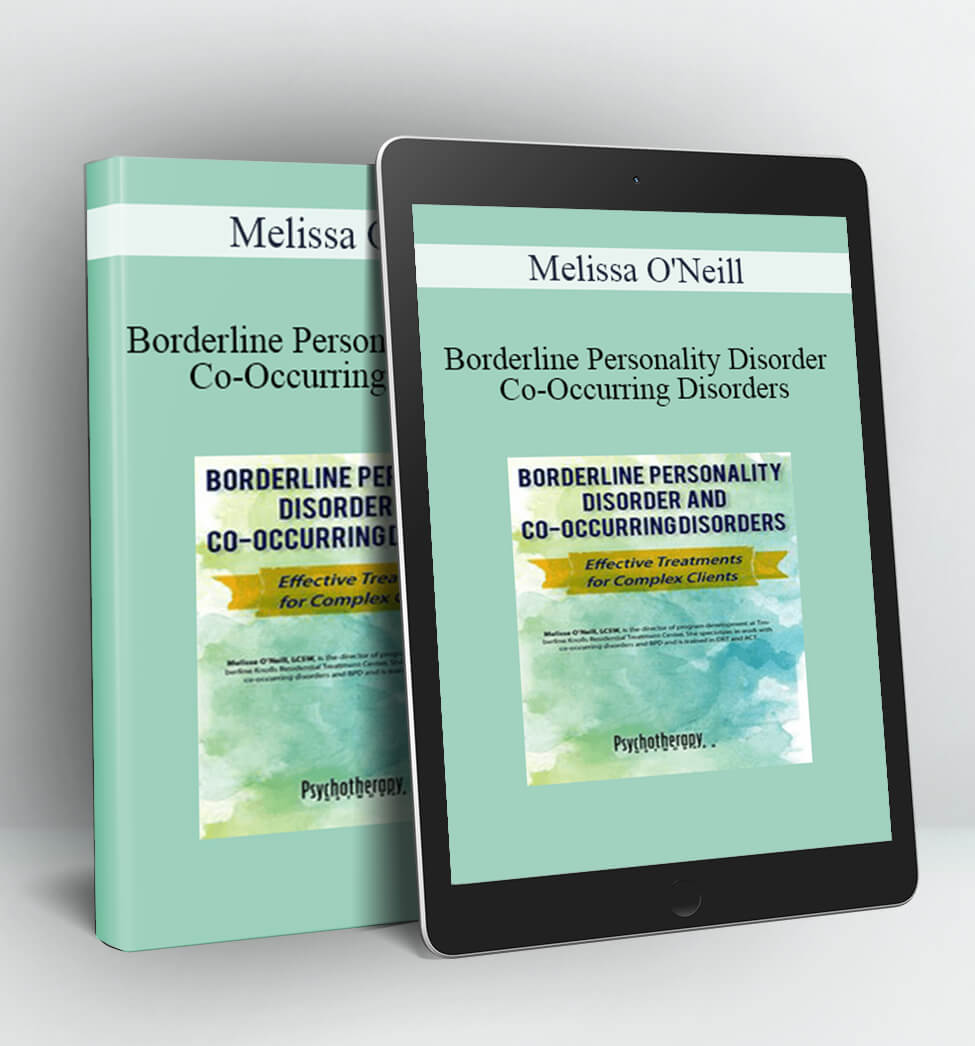
Borderline Personality Disorder and Co-Occurring Disorders – Melissa O’Neill
- Faculty:
- Melissa O’Neill
- Duration:
- 1 Hour 24 Minutes
- Format:
- Audio and Video
- Copyright:
- Mar 23, 2018
Description
We now know that along with accompanying mood disorders, 78 percent of adults with borderline personality disorder (BPD) will develop a substance disorder or addiction at some point. Understanding and addressing this complex comorbidity can make treating these clients less overwhelming. Through experiential exercises and case studies, we’ll explore how personal biases toward clients with BPD can affect diagnosis, treatment, and outcomes, and we’ll focus on a range of evidence-based practices for treating this complex diagnosis. You’ll discover how to:
- Implement effective strategies for managing impulsivity in BPD clients, including mindfulness and relapse-prevention planning
- Apply basic elements of Dual Focus Schema Therapy to treatment, such as altering clients’ negative belief systems to help break the cycle of chronic relapse
- Utilize strategies from DBT and ACT for co-occurring disorders, including distress-tolerance skill implementation and thought diffusion
Cultivate awareness of personal biases to avoid common traps with BPD clients, such as blaming the client and getting caught in their narrative
Handouts
| Manual – Borderline Personality Disorder and Co-Occurring Disorders (1.2 MB) | 21 Pages | Available after Purchase |
Outline
Clinician’s Biases can provide a powerful impact in treatment of BPD and Co‐occurring disorders
- The core of BPD is relational and inevitably comes into the therapeutic relationship
- The question isn’t whether it’s impacting the therapeutic relationship but “How?”
- Clinicians can identify common traps within the relationship and strategies to stay engaged in the therapeutic relationship
Evidenced‐Based Approach to BPD and Co‐occurring Disorders – Dual Focused Schema Therapy
- How to assess and create change through the negative belief system
- Early relapse prevention planning is the key to changing the negative belief system
Evidenced‐Based Approach to BPD and Co‐occurring Disorders – DBT and ACT
- Shifting perspectives to see emotional dysregulation as a source of impulsivity that often leads to relapse
- Introduction DBT and ACT skills to address emotional dysregulation
- Thought Diffusion
- Distress Tolerance Skills
- Mindfulness Skills
Faculty
Melissa O’Neill, LCSW Related seminars and products: 1
Melissa O’Neill, LCSW, is the director of program development at Timberline Knolls Residential Treatment Center. She specializes in work with co-occurring disorders and BPD and is trained in DBT and ACT.
Access Download Borderline Personality Disorder and Co-Occurring Disorders – Melissa O’Neill right now!
Delivery Method:
After your purchase, you’ll get access to the downloads page. Here, you can download all the files associated with your order.
Downloads are available once your payment is confirmed, we’ll also send you a download notification email separate from any transaction notification emails you receive from Coursedownloads.




